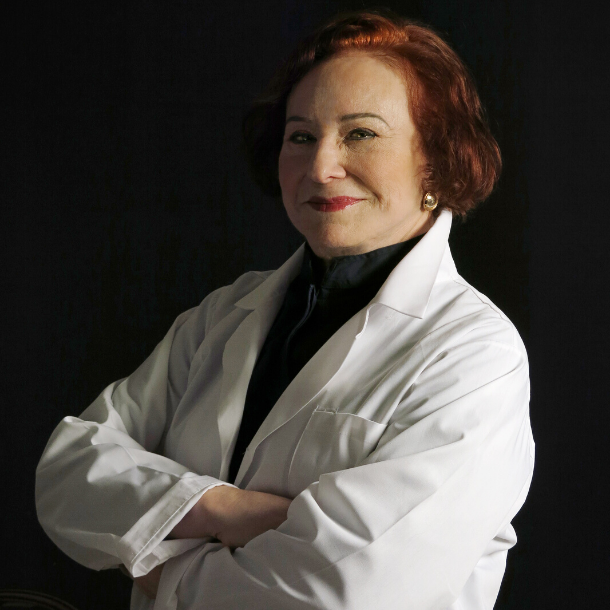TAMEST Member Profile: Dr. Florence Haseltine Comes out of Retirement to Innovate Health Technology at UTA

Florence P. Haseltine, M.D., Ph.D. (NAM), came out of retirement last year to join the faculty at The University of Texas at Arlington (UTA) as a Presidential Distinguished Professor after a successful career at the forefront of health technology. She is an innovator and inventor who holds numerous patents and has tirelessly promoted the advancement of women throughout her more than thirty-year career.
Dr. Haseltine was the Founding Editor of the Journal of Women’s Health and the Founder of the Society for Women’s Health Research (SWHR). Prior to coming to UTA, she was the Director of the Center for Population Research of the National Institute of Child Health and Human Development at the National Institutes of Health (NIH). In addition to her advocacy for women’s health, she is known for the study of sex differences.
She is a member of the National Academy of Medicine (NAM) and the National Academy of Inventors (NAI). In 2012, Dr. Haseltine received the Lifetime Achievement Award for the Health and Dignity of Women and Girls from the Friends of the United Nations Population Fund.
TAMEST connected with the acclaimed women’s advocate to hear more about her move to Texas and what research looks like in the midst of a pandemic.
What made you get into your field of research?
From the age of four years on, I have always been curious about the differences between males and females. The family lore is that I asked my dad so many times about why there were boys and girls that one day he threw up his hands and said, “When you grow up, you figure it out.” Well, you have to do what your father says, and the rest is history.
Tell us a little about yourself and your work.
I have been working at UTA to develop a program in the study of susceptibility to autoimmune disorders, particularly those that have different expression patterns in men and women. Right now, I am working as hard as I did as a medical intern with the exception: I can sleep at night.
Tell us more about how COVID-19 is changing your work?
As you can imagine, all of us want to help in this emergency. My daughter, who is a geriatrician, gives me enough grief about what I do but made it clear I was not to help at hospitals during this period.
Fortunately, when the pandemic began, our lab at the North Texas Genome Center was getting ready to accept clinical samples for evaluation. We had just gotten CLIA and CAP certification. A magnificent woman, Ms. Anajane Smith, known worldwide, as Miss HLA, had just joined us as our Immunogenetics Program Manager. When COVID-19 struck, what do you know? Men are much more severely affected by COVID-19 than women, but we don’t know why.
We are primed to participate in an international effort to identify what immunologic markers might give us a tool on why there are differences among groups of people and particularly sex differences. We may not answer these questions, but without the huge technological advances in sequencing, public health and international collaboration, we could not even dream of finding any answers.
What advice would you give to people starting out in STEM careers?
Science is fun and you never know. I didn’t ever guess that what I considered my life’s work, that of getting sex differences taken seriously as a scientific question, would come back and force an old lady back into the lab. If you are in science, you never have to be bored, you have great people to interact with and you can watch what you have contributed to get used in the most unbelievable ways.
What value do you think TAMEST brings to Texas?
To researchers and inventors, it states loudly: Texas has your back. What you do has value and we appreciate it.
Why do you work and live in Texas?
I never in a million years thought of moving to Texas. I grew up in the Mojave Desert and my goal was to get out. That was the easy part. I made a mistake of going to graduate school in the Eastern United States, and once you are there, it is hard to leave. Everything you really need intellectually is within 300 miles.
However, after we retired there was nothing particularly holding us there. Friends yes, but not work, and I could really practice my medical advocacy work anywhere. So, when former UTA President Vistasp Karbhari came up to recruit me and show me what UTA had to offer in terms of activities, I couldn’t see a reason not to come and saw plenty of reasons to relocate. The worst part was having to leave my dog.
Is there anything else you’d like to add about TAMEST?
I think TAMEST is a great way for scientists to see new people. As we age, and let’s face it, TAMEST does not have a lot of young members, it is critical to see science in other areas. It is a great way to listen and realize that something you never thought about is relevant to your work, and maybe what you do across many disciplines is of value to others’ work.

